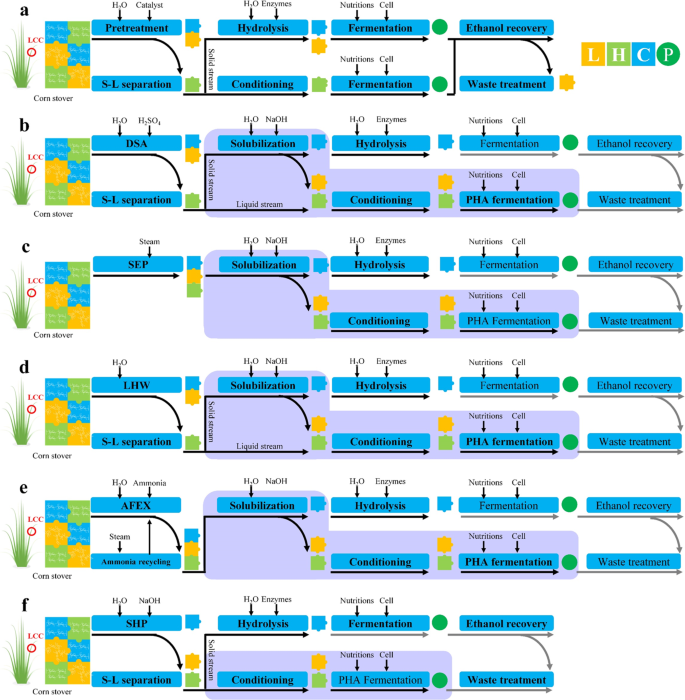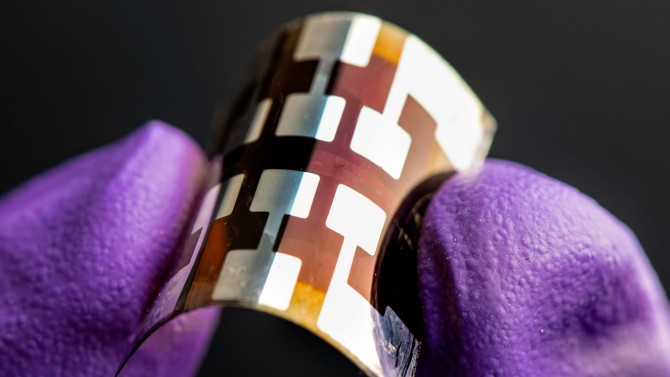2021-06-25 アメリカ合衆国・マサチューセッツ工科大学(MIT)

・ MIT が、リグノセルロース系バイオマスを原料とする、バイオエタノールの高収率製造技術を開発。
・ エタノール等のバイオ燃料の増産は世界的な化石燃料消費量の低減に向けた重要な手段となり得るが、米国のバイオエタノール生産では育成に水と肥料を大量に使用するトウモロコシを使用しており、燃料需要に見合う量が生産されていない。米国のトウモロコシ生産量の約40%がエタノールの製造に利用されている。
・ 米国エネルギー省(DOE)によると、稲わら、麦わらやトウモロコシ茎葉等を含むリグノセルロース系バイオマスの総量は年間 10 億トンを超え、輸送部門で使用される石油の 30~50%を代替可能としている。
・ リグノセルロース系バイオマスの利用では、木質のリグニンからのセルロースの分離に加え、酵母が処理できる単糖へのセルロースの分解が不可欠。バイオマスのこのような前処理プロセスで発生するアルデヒドは反応性が極めて高く、酵母を死滅させるという課題がある。
・ 同大学は 2015 年の研究において、特定の化合物を添加することで酵母の細胞膜を強化し、高濃度のエタノールを耐久できる酵母を開発。エタノールの収率を約 80%向上させた。
・ このようなアルコール耐性戦略をベースに、本研究では数種類の酵母株の酵素のうち最も優れたものを特定して指向性進化法(directed evolution)による改善を重ね、アルデヒドをアルコールに変換できる酵母を開発した。
・ 通常、リグノセルロース系原料の酵母によるエタノール製造は効率的ではないが、高性能酵素の利用と細胞膜を強化する化合物の添加により、従来のエタノールの生産量を 3 倍超に増量。これは、トウモロコシによるエタノール製造量のレベルに匹敵する。
・ スイッチグラス、麦わら、トウモロコシ収穫後に残る葉、茎、殻の 5 種類のリグノセルロース系原料からのエタノールの高収率を実証。使用できる原料の選択肢が広がる。
・ また、バイプラスチックの前駆体である乳酸を生成する酵母株に同高性能酵素を導入した乳酸の高収率も実証。このことは、バイオディーゼル等を生成する酵母株等への導入も可能であることを提示。物質生産経路のほぼすべてに導入できる耐性モジュールを獲得した。
・ 本研究には、DOE および米国立衛生研究所(NIH)が資金を提供した。
URL: https://news.mit.edu/2021/engineered-yeast-biofuels-0625
<NEDO海外技術情報より>
(関連情報)
Science Advances 掲載論文(フルテキスト)
Engineered yeast tolerance enables efficient production from toxified lignocellulosic feedstocks
URL: https://advances.sciencemag.org/content/7/26/eabf7613
Abstract
Lignocellulosic biomass remains unharnessed for the production of renewable fuels and chemicals due to challenges in deconstruction and the toxicity its hydrolysates pose to fermentation microorganisms. Here, we show in Saccharomyces cerevisiae that engineered aldehyde reduction and elevated extracellular potassium and pH are sufficient to enable near-parity production between inhibitor-laden and inhibitor-free feedstocks. By specifically targeting the universal hydrolysate inhibitors, a single strain is enhanced to tolerate a broad diversity of highly toxified genuine feedstocks and consistently achieve industrial-scale titers (cellulosic ethanol of >100 grams per liter when toxified). Furthermore, a functionally orthogonal, lightweight design enables seamless transferability to existing metabolically engineered chassis strains: We endow full, multifeedstock tolerance on a xylose-consuming strain and one producing the biodegradable plastics precursor lactic acid. The demonstration of “drop-in” hydrolysate competence enables the potential of cost-effective, at-scale biomass utilization for cellulosic fuel and nonfuel products alike.



